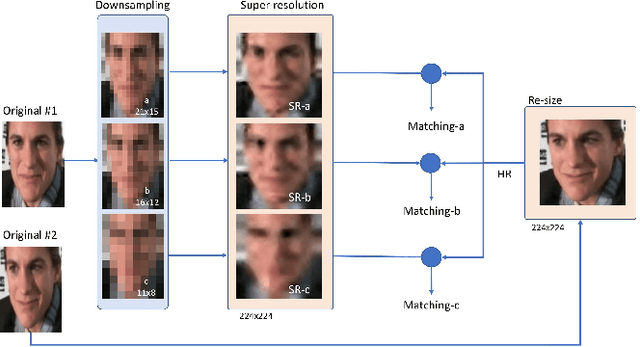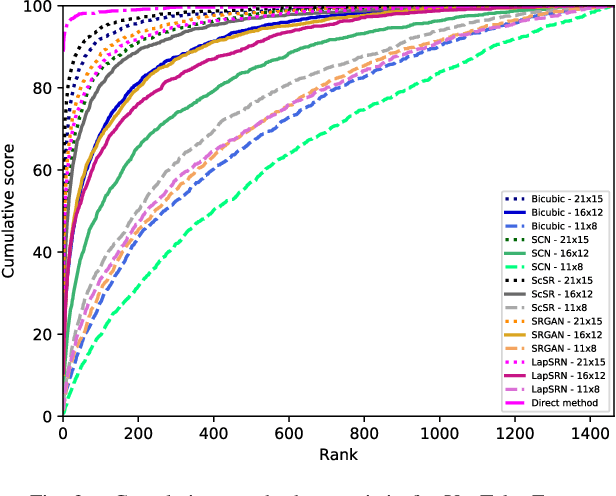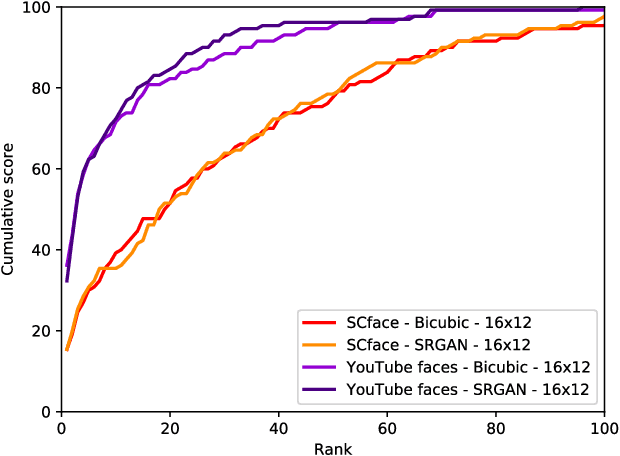Low Resolution Face Recognition in the Wild
Paper and Code
May 29, 2018



Although face recognition systems have achieved impressive performance in recent years, the low-resolution face recognition (LRFR) task remains challenging, especially when the LR faces are captured under non-ideal conditions, as is common in surveillance-based applications. Faces captured in such conditions are often contaminated by blur, nonuniform lighting, and nonfrontal face pose. In this paper, we analyze face recognition techniques using data captured under low-quality conditions in the wild. We provide a comprehensive analysis of experimental results for two of the most important applications in real surveillance applications, and demonstrate practical approaches to handle both cases that show promising performance. The following three contributions are made: {\em (i)} we conduct experiments to evaluate super-resolution methods for low-resolution face recognition; {\em (ii)} we study face re-identification on various public face datasets including real surveillance and low-resolution subsets of large-scale datasets, present a baseline result for several deep learning based approaches, and improve them by introducing a GAN pre-training approach and fully convolutional architecture; and {\em (iii)} we explore low-resolution face identification by employing a state-of-the-art supervised discriminative learning approach. Evaluations are conducted on challenging portions of the SCFace and UCCSface datasets.
 Add to Chrome
Add to Chrome Add to Firefox
Add to Firefox Add to Edge
Add to Edge